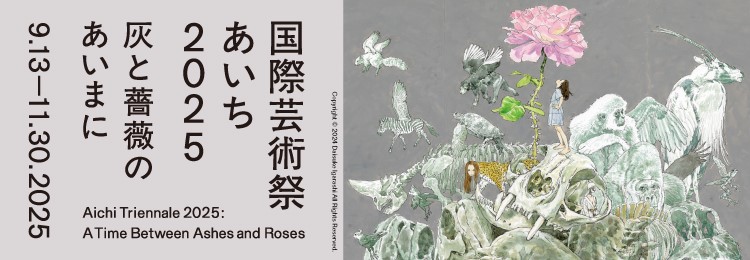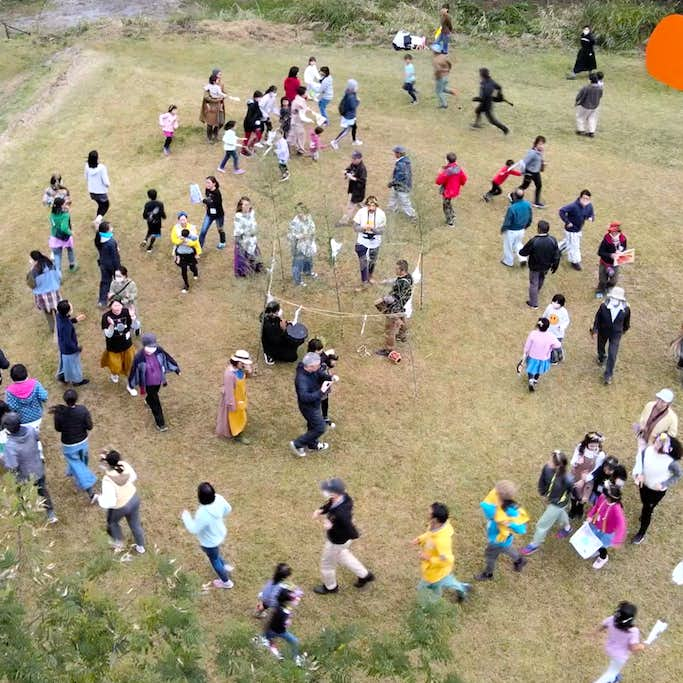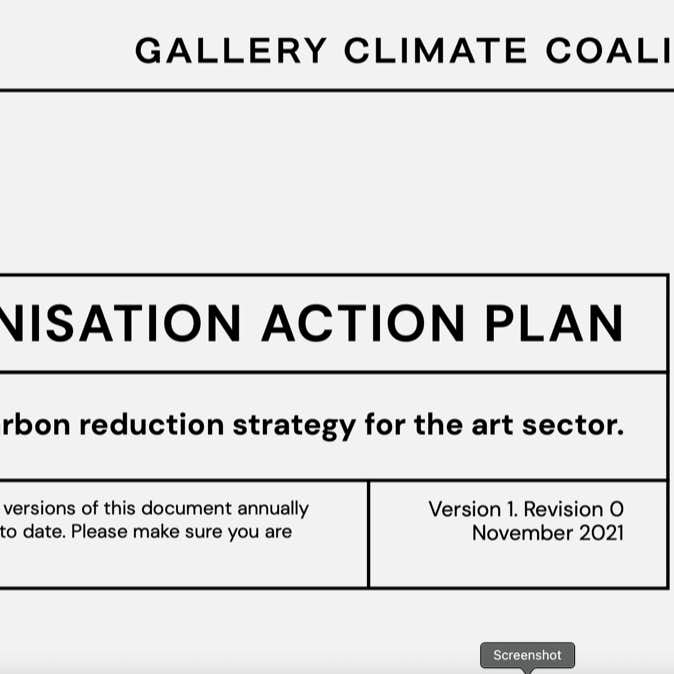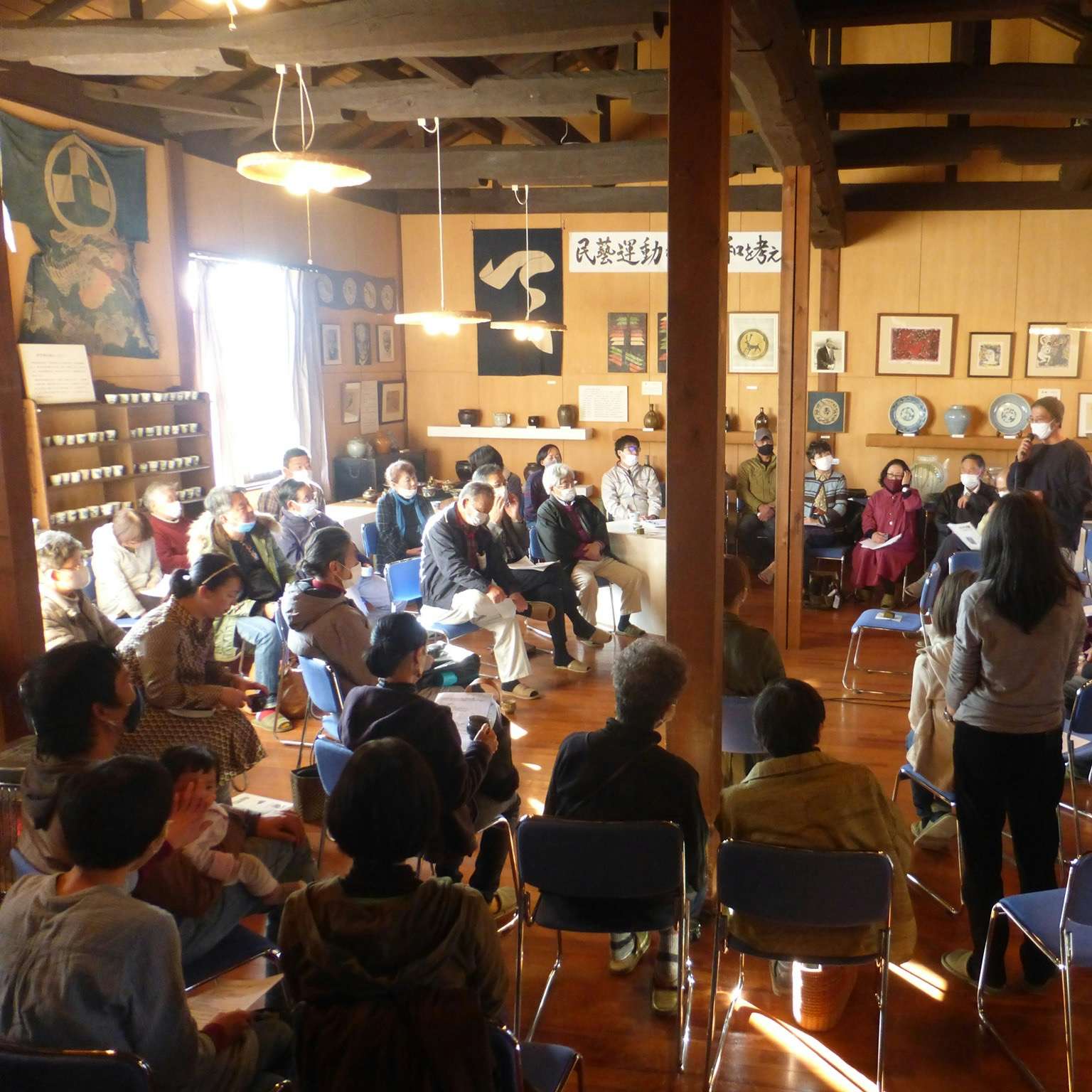アートと気候危機のいま vol.3 コラム「アートと気候危機をめぐるダイアリー」
NPO法人アーツイニシアティヴトウキョウ [AIT/エイト]設立メンバーのひとりであり、TOTAL ARTS STUDIES(TAS) プログラム・ディレクター、ロジャー・マクドナルドによる、気候危機とアートについての連載記事シリーズ。ニュースやインタビューで海外の動向の「いま」をわかりやすく紹介する不定期連載の第3回は、ロジャーによるミニコラムを紹介。気候危機に対するアート界の最新の動向やアート産業の課題点などを考察する。*The English version is below the Japanese.
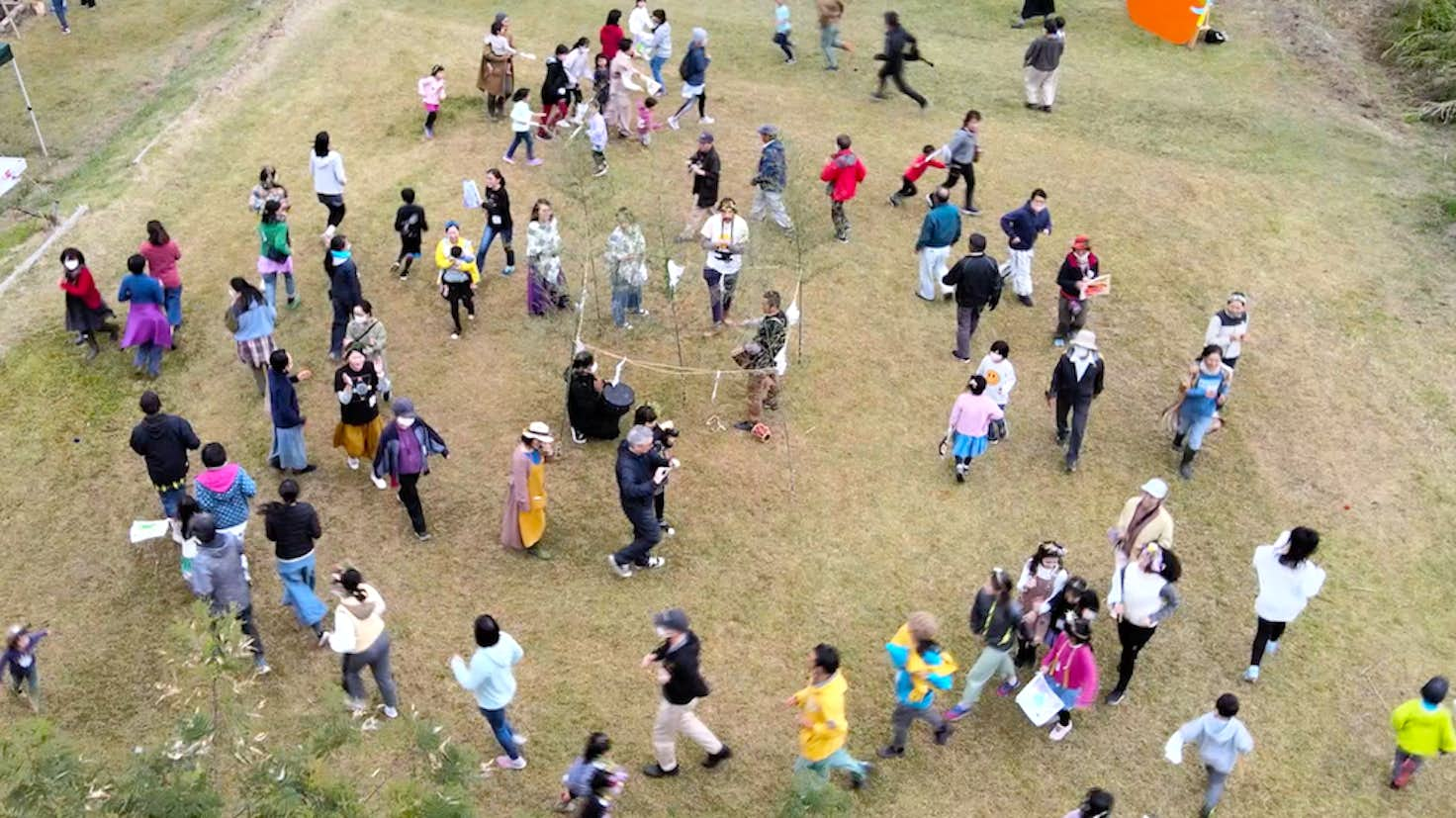
今年(2023年)は、気候科学者たちが現在の「ビジネス・アズ・ユージュアル(変わらない日常)」路線がもたらす潜在的な影響について、警告を発し続ける年になるだろう。ガーディアン紙は1月下旬、米国のスタンフォード大学とコロラド州立大学の研究者による新しい研究結果を報じ、「(パリ協定では)産業革命以前と比べ世界の平均気温の上昇値を1.5℃に抑えるべきとされていたが、今後10年間に、おそらくそれを超える温暖化が起こるだろう」と述べた。また、国際的な科学者が転換点と認定した世界の平均気温の上昇幅である2℃を超えようともしており、今世紀半ばまでにその基準に到達する可能性はおよそ50パーセントであるとしている。
アート業界は、様々な方法でこの危機に対応しようとしている。「Gallery Climate Coalition(GCC) 」(ギャラリー気候連合:アートセクターに対して積極的な気候アクションを促す国際的ロビー団体)の影響は世界的に広がっており、現在、各国から800を超えるメンバーが参加している。そして、2023年春からGCCは「アクティブ・メンバーシップ」制度を開始する。これは、加入中のGCCメンバーに対して、それぞれの組織内でより具体的な行動を起こすように促す取り組みである。
「アクティブ・メンバー」になるには、温室効果ガスの排出量を算出・報告する取り組みであるカーボン・オーディット(カーボン監査)の提出、組織内のグリーンチーム(組織の中で環境問題に対して考え、アクションを促すチーム)の設立、環境責任ステートメント(気候変動対策への組織のコミットメントを概説した声明文 )の発表などが義務づけられる。AITはGCCに2021年末に加盟し、この春には第一期のアクティブ・メンバーとして正式に承認される予定である。また、この記事を書いている2023年4月時点では、日本からの加盟は私たちだけのようだが、今後、日本のアート団体の加盟を呼びかけたいと思う。
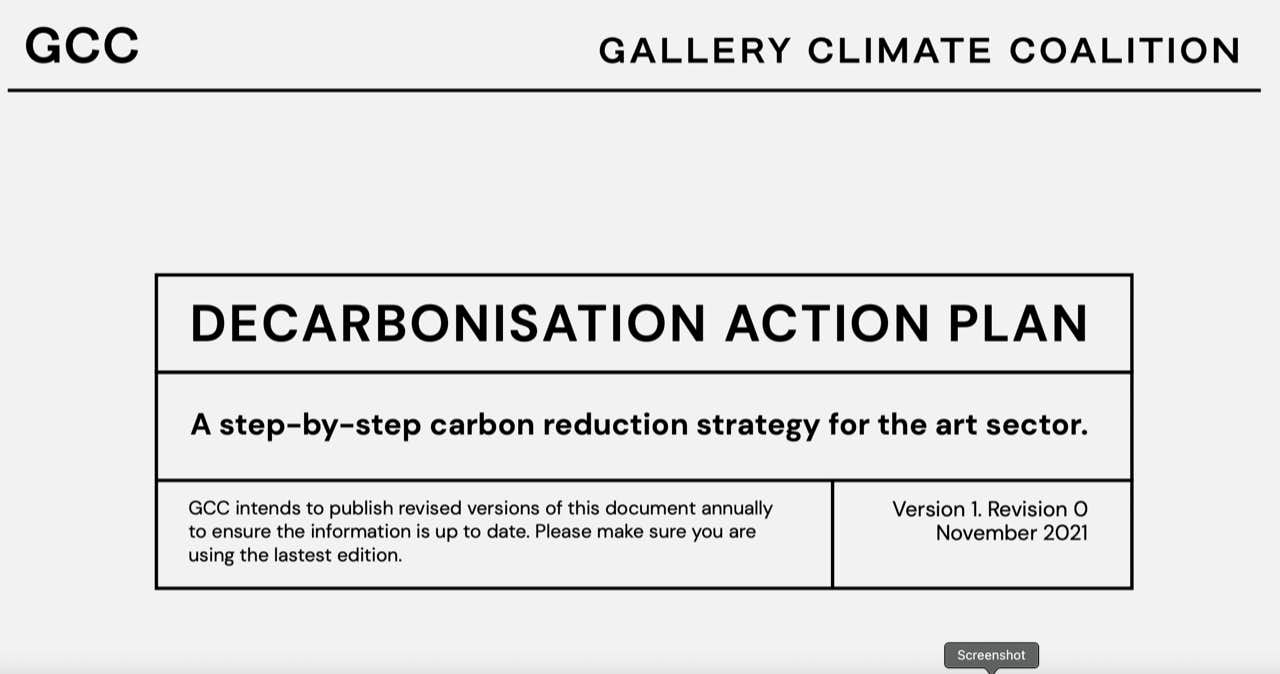
アート業界が気候危機に真剣に対応しようとするならば、こうした構造的・組織的な行動が不可欠だろう。しかし現実には、世界各地での気候危機の捉え方や考えには、かなりの違いがある。個人的な感想としては、正直、ヨーロッパ諸国が感じている危機感を日本が同様に共有しているとはまだ思えない。 たとえば、日本では「気候温暖化」という言い方が一般的だが、ヨーロッパ諸国ではある段階から「気候危機(climate crisis / climate emergency)」という言葉が広く使用されるようになった。こうした言葉一つとっても危機意識に対する温度差を感じる。アート業界では、サーペンタイン・ギャラリーでいち早く環境専門のキュレーターのポジションを採用。また2019年にテート美術館が、テート全館で気候危機に対応する宣言「Tate Directors declare climate emergency」を発表するなど、公的な組織でこの危機に立ち向かおうとする具体的な動きが見受けられる(*)。 日本ではSDGsの取り組みが主流になっているが、あまりにも大雑把で漠然としていると感じることも多くある。
私は、AITでの活動や住んでいる場所での市民運動を通じて、コミュニティやアートの分野で、気候危機について考え行動を起こそうとしているが、同時に、グローバル化したアート界に対して常に多くの矛盾を感じている。とくに、アートは贅沢(ラグジュアリー)な「サービス産業」とみなされがちで、基本的に地球上の最も裕福な人々にサービスを提供していると言える(アート作品の売買、社交の場、パトロンなど)。実際、著名アーティストの作品価格は上昇し続けているために、ごく少数の超富裕層コレクターしかアクセスできなくなっている現状もある。このようなごく一部のアートマーケットが、メディアやアート界における一般的な「アート」を代表することが多いのは、とても不思議なことだと思う。
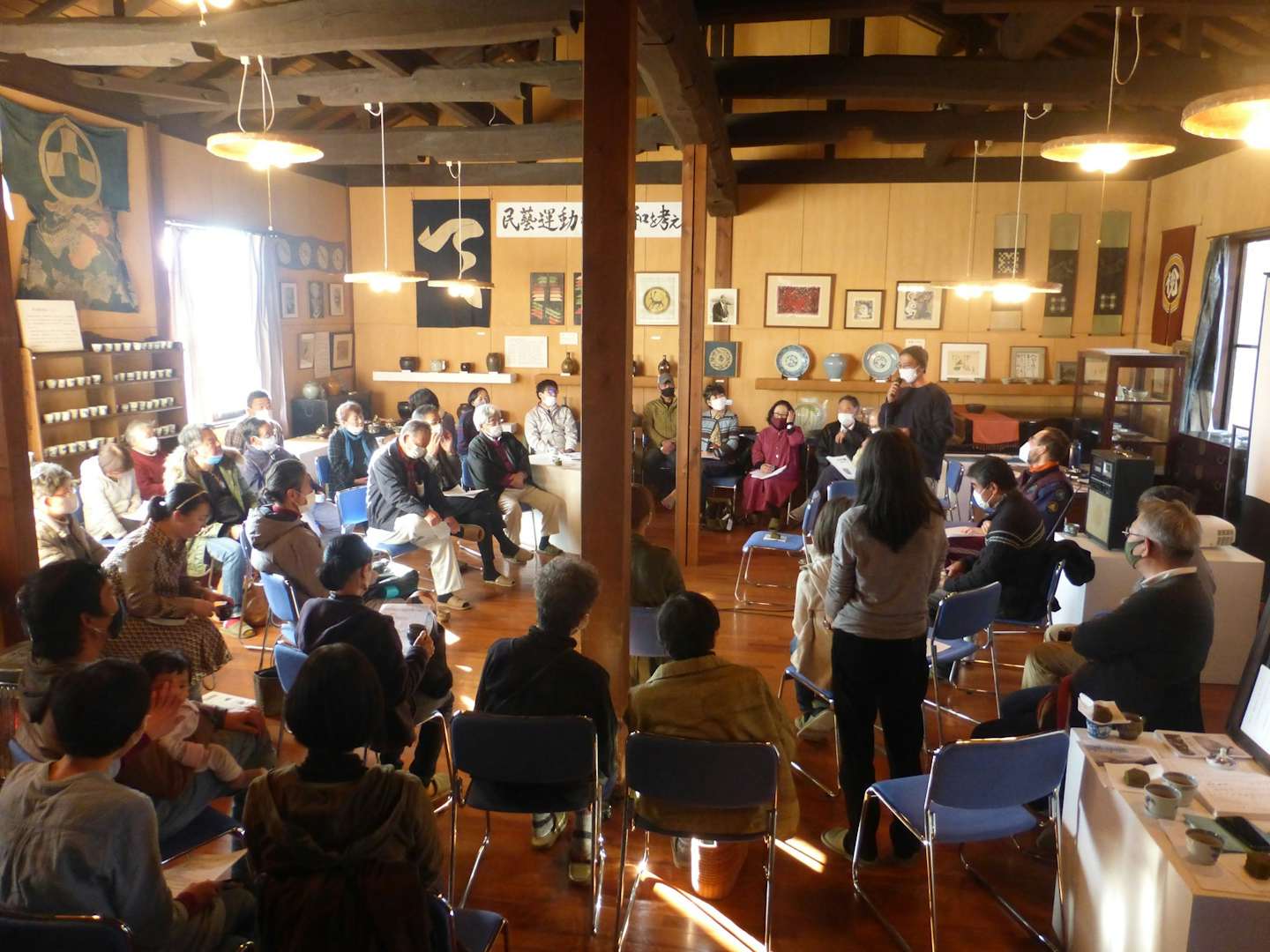
私たちは、アートをオープンで多様な学びと共有の場として、社会に開いていくことを再考すべきだ。無料でアートを学ぶことのできる「Smart History」のようなウェブベースのプロジェクトや、世界中で草の根的に起きているアートの学びの自発性は、この点で先駆的である。AITでも「FREE MAD」(2012-)という、オンラインかつ無料で美術史を学べる講座シリーズを公開している。アート界は、様々な人々のニーズに応えられるよう、幅広くあるべきだと思う。
気候変動の危機に対して積極的なリーダーシップを発揮するためには、アートもまた、特権と贅沢の見世物に惑わされることなく、しっかりと地に足をつけている必要がある。そうして初めて、芸術は変化をもたらし、この地球上の大多数の人々と関わり始めることができるのではないだろうか。
*──https://www.a-i-t.net/blog/p7758/
追記:AITはGCCのアクティヴメンバーに正式に承認された。(2023年5月30日)

